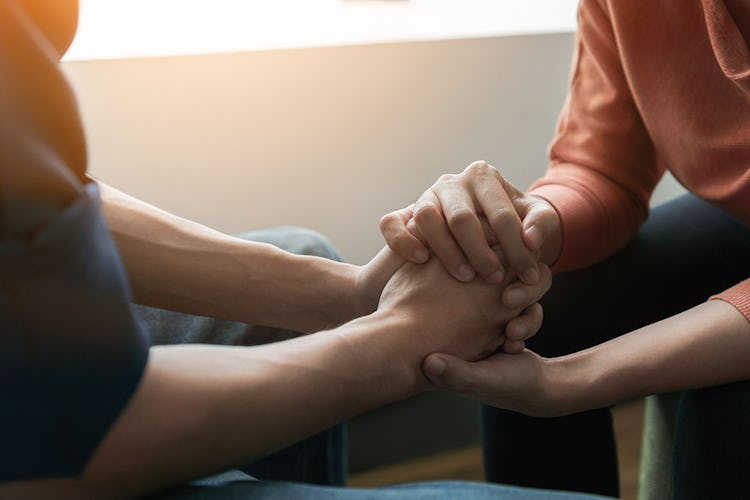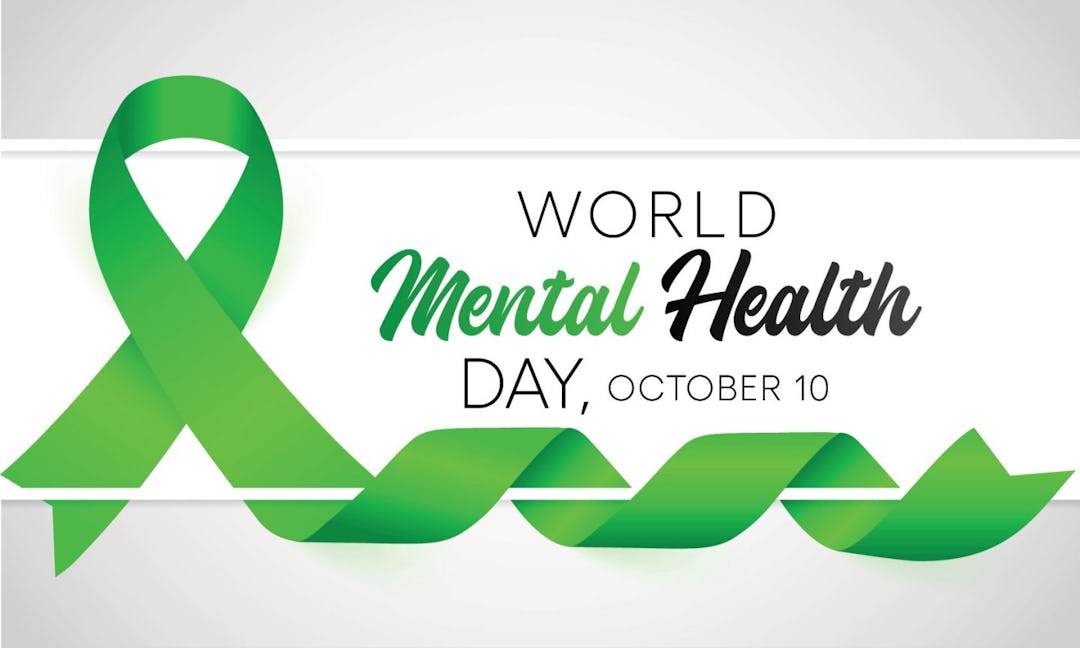The past few years have brought major challenges to people all over the planet—and it’s not over yet. That’s why now, perhaps more than ever, health organizations are drawing attention to one of the most overlooked and under-recognized aspects of wellness: mental health.
October 10th marks the 30th anniversary of World Mental Health Day, a date established by the World Federation for Mental Health—a partner of the World Health Organization (WHO)—to create awareness around mental health issues and promote self-care. This year’s theme is making mental health and well-being a global priority for all. As a health and wellness brand with a worldwide reach, Onnit is proud to recognize World Mental Health Day, and, in honor of the event, offer some education on mental health challenges and ways to manage them. Read on to see why mental health is so important, and what you can do to help yourself and others—no matter what life throws at you next.
What Is Mental Health?

According to the Centers for Disease Control and Prevention (CDC), mental health encompasses one’s emotional, psychological, and social well-being, affecting thoughts, feelings, and behaviors. It determines how you handle stress, relate to others, and make choices. Your mental health is closely linked to your physical health. Depression, for example, is known to increase the risk for diabetes, heart disease, and stroke. By the same token, physical conditions can increase the risk of mental illness.
With that said, it’s important to understand that poor mental health and mental illness are not synonymous terms. Mental illnesses are specific conditions that affect a person’s thinking, feeling, mood, or behavior—such as depression, anxiety, or obsessive-compulsive disorder (OCD). A person can experience poor mental health and not be diagnosed with a mental illness, and one who is mentally ill can still have bouts of physical, mental, and social well being.
“Many people who have just broken up with a boyfriend or girlfriend will meet the criteria for major depression,” said Ronald C. Kessler, PhD, a mental health expert and the McNeil Family Professor of Health Care Policy at Harvard Medical School (in an article for Brigham Health Magazine). “Does it mean they need psychotherapy? No. Would psychotherapy help? Maybe.” The point Kessler makes is that while some people develop severe conditions, we all suffer poor mental health and some point.
The CDC reports that poor mental health can result whenever demands placed on a person exceed their resources and coping abilities. This can come from working long hours, caring for others, financial challenges, and many other common problems. If poor mental health isn’t addressed, it can potentially lead to diagnosable mental illness. Abuse and trauma in early life, battling chronic medical conditions, chemical imbalances in the brain, drug and alcohol use, and feelings of loneliness and isolation can all contribute to the risk for mental illness.
Is Mental Illness Common?
For decades, mental illnesses carried a stigma. They often weren’t reported or diagnosed. But health authorities are beginning to compile some powerful statistics, showing that they’re not only common but also a clear and present danger to overall health and wellness.
Look at these numbers:
– More than 50% of Americans will be diagnosed with a mental illness or disorder at some point in their lifetime, and 1 in 5 will experience a mental illness in a given year
– 1 in 25 Americans lives with a serious mental illness, which may include bipolar disorder and schizophrenia
– People with depression have a 40% higher risk of developing cardiovascular and metabolic diseases
– 32.1% of U.S. adults with mental illness also experienced a substance use disorder in 2020
– Depression and anxiety disorders cost the global economy $1 trillion in lost productivity annually
“The most commonly-diagnosed mental illnesses are anxiety disorders, which affect around 19% of adults,” says Darrick Nicholas, Director of Communications and Engagement for Integral Care, an Austin-based mental health community center and support service. Depressive disorders and Post-Traumatic Stress Disorder (PTSD) are also widespread. “These statistics are not mutually exclusive,” says Nicholas, “since people may be diagnosed with multiple conditions.”
How To Tell If You (or Someone You Care About) Is Suffering

Nicholas says you can begin to identify mental health problems by paying attention to the following signs.
– Thoughts of suicide or other self-harming behaviors
– Feelings of sadness that last several weeks
– Loss of interest in activities that were once enjoyable
– Intrusive thoughts that cause distress
– Excessive worry or fear, or persistent feelings of extreme guilt
– Social withdrawal
– Extreme mood changes
– Confusion or inability to concentrate
– Developing strong beliefs, or seeing and hearing things that others do not experience or believe.
If you or a loved one experience any of the above, consider looking for mental health treatment. “In general, there is not a wrong first place to ask for help,” says Nicholas, “since a trained mental health professional can help determine what the most effective type of treatment may be. Though some types of symptoms may require medical treatment from a psychiatrist, such as persistent depression, thought disorder—including paranoid thinking and delusional belief systems—and major mood swings, many symptoms may respond to therapy.”
Ways To Care For Your Mental Health
While the stats around mental illness are daunting, there are many ways one can care for one’s self that are practical, easy to implement, and may go a long way toward managing any current problems you have, as well as warding off future illness.
The National Institute of Mental Health recommends the following:
Exercise

It’s one of the healthiest things you can possibly do in a day. Apart from the muscular, cardiovascular, and weight-management benefits you already know about, exercise has been shown to have positive impacts on the brain again and again. An article in the Primary Care Companion to the Journal of Clinical Psychiatry explains that several forms of exercise—including favorites like jogging, swimming, cycling, walking, dancing, and even gardening—have been proven to reduce anxiety and depression. (Scientists think it’s because they boost circulation to the brain and influence the adrenal system, thereby promoting our ability to manage stress. It’s also been proposed that exercise serves as a distraction from our problems, and that the social component that often accompanies working out plays a role too.)
The piece goes on to say that exercise has also been shown to improve self-esteem and cognitive function. Fortunately, the authors note, a little movement goes a long way. “Thirty minutes of exercise of moderate intensity, such as brisk walking for three days a week, is sufficient for these health benefits. Moreover, these 30 minutes need not to be continuous; three 10-minute walks are believed to be as equally useful as one 30-minute walk.”
Eat Healthy
While many people think of caffeine and alcohol as ways to feel energized or relaxed, they can have the opposite effect—especially if over-consumed. A 2021 review explains that both chemicals, along with artificial sweeteners, can promote feelings of anxiety. Meanwhile, research in Nutrients showed that college students who added fruits and vegetables to their diets saw improved mental health and well being.
Interestingly, a review in the Indian Journal of Psychiatry noted that “Many of the easily noticeable food patterns that precede depression are the same as those that occur during depression. These may include poor appetite, skipping meals, and a dominant desire for sweet foods.” The authors continue that depressed people “make poor food choices, selecting foods that might actually contribute to depression.”
Sleep
Have one sleepless night and you’re bound to feel lousy the next day. But if you sleep badly on the regular your whole life could suffer—and that’s not an exaggeration. A review in Psychological Bulletin explains that sleep helps to regulate emotions and stabilize mood, so a lack of shuteye can actually amplify negative emotions while simultaneously blunting the positive feelings associated with rewarding experiences. In other words, if you don’t sleep well, you’ll never fully enjoy life!
The Sleep Foundation recommends setting habits that help establish consistent, restful sleep. These include maintaining a regular bedtime, dimming the lights and avoiding electronics in the evening, and maximizing natural light exposure during the day (i.e., get outside in the sun).
Relax
Sometimes you just gotta chill, and there are plenty of science-backed ways to do it that don’t involve Netflix. The National Institutes of Health suggest several relaxation techniques, including progressive muscle relaxation (tensing different muscles in the body and then releasing the tension to induce greater relaxation); visualization (picturing images that relax you); self-hypnosis; and breathing exercises.
One review found that diaphragmatic breathing helped to lower stress, as shown by both subjects’ self-reported feedback and physiological markers.
Get Organized
Getting your sh*t together—even in the simplest ways—can really put your mind at ease. The National Institutes of Health recommend organizing your daily tasks and setting priorities (hint: try “to-do” lists). Get comfortable with saying no to requests or favors that you don’t have time for and that make you feel overwhelmed. You should also spend the end of the day focusing on what you have accomplished, rather than dwelling on what may be unfinished.
Practice Gratitude
Just as you shouldn’t think about what tasks remain undone, you shouldn’t brood over what you don’t have. In fact, doing just the opposite—showing gratitude for all the good things in your life—is enormously uplifting. Research collected by UC Berkeley indicates that gratitude practice improves mood, self-esteem, relationships, and can even ward off depression and suicidal thoughts.
Keep a journal where you list all the things you’re grateful for each day, and make a point of telling the people you care about that you appreciate them. Make time to talk with friends about what you’re both happy with in your lives.
Stay Connected

“I am a rock; I am an iiiiisland” may make for good song lyrics, but it’s not healthy for the mind or the body. Research cited in the American Journal of Lifestyle Medicine shows that maintaining social relationships doesn’t just give you plans on Saturday nights—it helps you stay alive.
The authors write, “It is evident that social connection has substantial impacts in many categories of health, from weight management, diabetes, cardiovascular disease, cancer, and depression. Some psychiatrists go so far as comparing social connection to vitamins: ’just as we need vitamin C each day, we also need a dose of the human moment—positive contact with other people.’” They go on to argue that social connection should be considered as vital to human survival as the obvious essentials like food, water, vitamins, and minerals.
The researchers recommend socializing with friends and family on a daily basis—or at least one per week. (Note: they specify that these should be people you actually like and feel connected to: not your creepy uncle or the neighbor who steals your morning paper.) You can connect face-to-face, or via phone or Skype/Facetime.
For more help supporting mental health, check out Integral Care’s Mental Health Toolkit, co-created with the National Alliance on Mental Illness. The kit contains guides on self-care and gratitude practices, mental health podcasts to listen to, and more. See also their resources page and helpine.
And on October 10th, use social media to show us how you stay balanced. Post about how you’re changing your diet, adjusting your sleep routine, going to therapy, taking a walk, etc. See our Instagram giveaway on World Mental Health Day for more.

)





